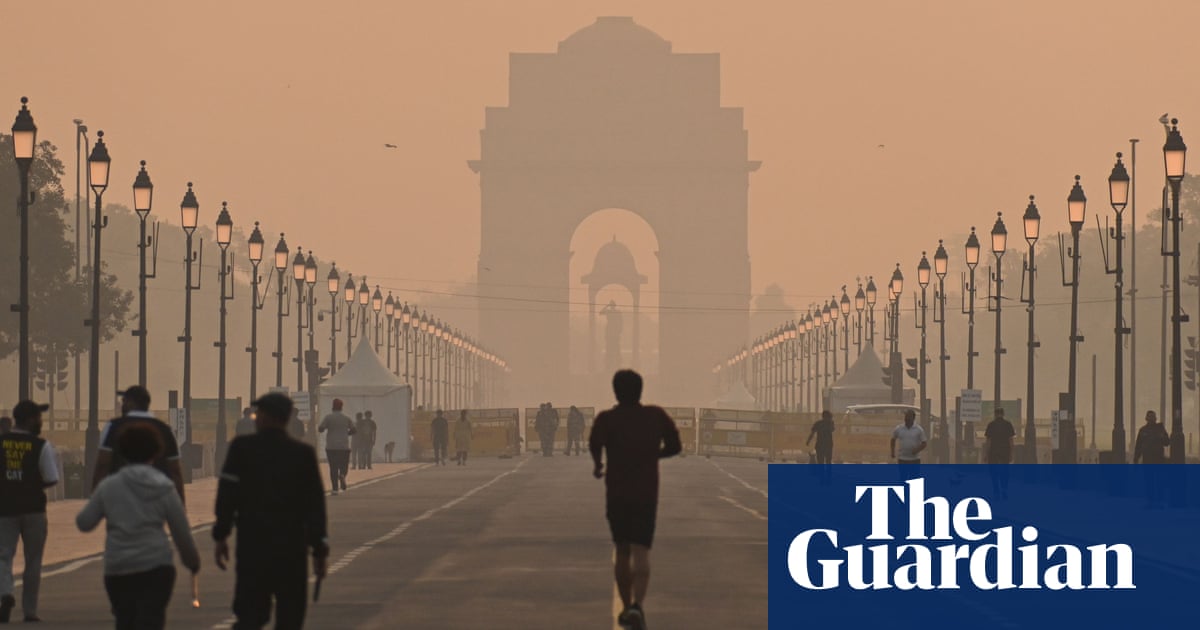
Long-term exposure to air pollution may increase the risk of death from Covid-19, according to a large study by the Office for National Statistics.
It analysed more than 46,000 coronavirus deaths in England and showed that a small, single-unit increase in people’s exposure to small-particle pollution over the previous decade may increase the death rate by up to 6%. A single-unit increase in nitrogen dioxide, which is at illegal levels in most urban areas, was linked to a 2% increase in death rates.
These increases are smaller than found in other research; a US study found an 8% increase and an analysis of the Netherlands found a 15% rise. This may be because those studies assessed earlier stages of the pandemic when the virus was mostly spreading in cities.
Data is so far only available as averages for groups of people and the ONS said this meant no definitive conclusion on the link between dirty air and the worst impacts of Covid-19 could yet be made. Instead, individual-level data would have to be examined to rule out other possible factors. The ONS has begun this work for patients in London.
The ONS also found that air pollution could be a factor in explaining why people from BAME backgrounds suffer more from coronavirus.
“The effects of long-term exposure to air pollution as a factor that increases coronavirus mortality appear smaller than those reported in previous studies, though our upper estimates are similar in magnitude to some,” the ONS report said. “[But] it must be accepted that the true picture will likely only emerge once data are available for highly detailed individual-based modelling.”
There are good reasons to suspect that air pollution worsens Covid-19. “Consistent exposure to air pollution is a known cause of breathing difficulties and other long-term conditions in the lungs and heart,” the ONS report said.
”Our data show that 35% of deaths involving Covid-19 had a respiratory or cardiovascular disease as the main pre-existing health condition.”
However, towns and cities have both high air pollution and also high rates of coronavirus infections, deprivation, poor health and dense population. The ONS report was able to take some account of these factors, but teasing out the impact of each factor alone is a difficult statistical challenge.
This is particularly true for minority ethnic populations as they are exposed to higher levels of dirty air than others. The ONS said it was currently impossible to entirely separate the effects of race and pollution. But it said: “If there is a causal link between air pollution and Covid-19-related mortality, it would partially explain the disparities in outcomes for minority ethnic groups.”
The ONS used a novel approach to help take account of the other factors. Instead of using postcodes or other geographical areas for the analysis, it grouped together areas across the country that shared socioeconomic and demographic characteristics.
Prof Matthew Cole, at the University of Birmingham and who conducted the analysis of the Netherlands, said: “The ONS study uses a very unconventional way of grouping the data. This is a real shame as it means we can’t be sure if the estimated results are driven by this unconventional method.
“In the absence of individual level data, fine regional data is the only way to examine these issues,” he said. “It’s a shame therefore that this study uses 175 relatively large regional groupings. This means the characteristics of each region risk being averaged out.”
Geraint Davies MP, chair of the all-party parliamentary group on air pollution, said: “The study neither proves nor disproves the hypothesis that air pollution worsens outcomes in Covid-19. However, we know air pollution leads to 62,000 premature deaths each year and weakens people prior to catching coronavirus. Therefore the government has a duty to act and this should be a call to action, not an excuse for further inaction.”
In July, the detailed and comprehensive Netherlands analysis concluded there was “compelling” evidence that air pollution significantly increases coronavirus infections, hospital admissions and deaths. There is also evidence from Europe, the US and China.
The UK government’s expert air pollution advisers stated at the start of July that air pollution was likely to be increasing the number and severity of Covid-19 infections. They said further investigation of the link between dirty air and the coronavirus pandemic was urgently required and may be relevant to how the pandemic is managed.
Also in July, a study of 400 hospital patients in Birmingham linked the severe impacts of Covid-19 on people from ethnic minorities to air pollution and overcrowded and poor-standard homes.
Ninety parliamentarians led by Davies have urged the government to back action on air pollution to help avoid a second wave of coronavirus, while an air pollution inquiry by a select committee of MPs is examining delays in the rollout of clean air zones in cities as a result of the pandemic.












